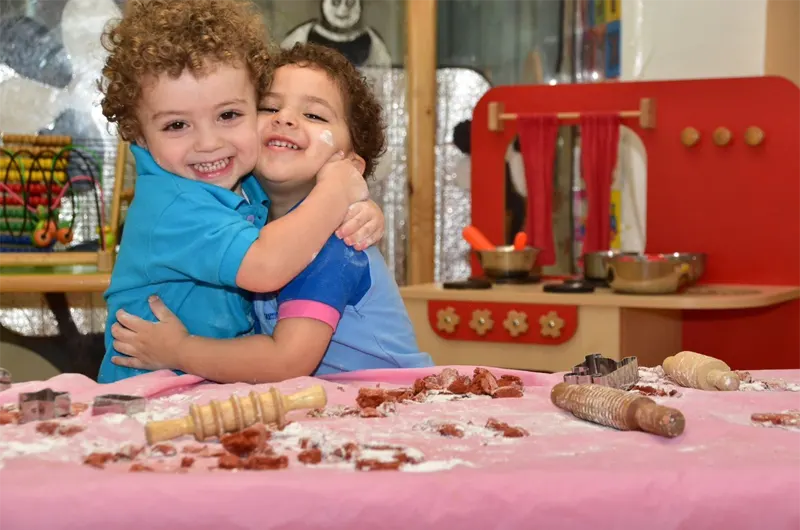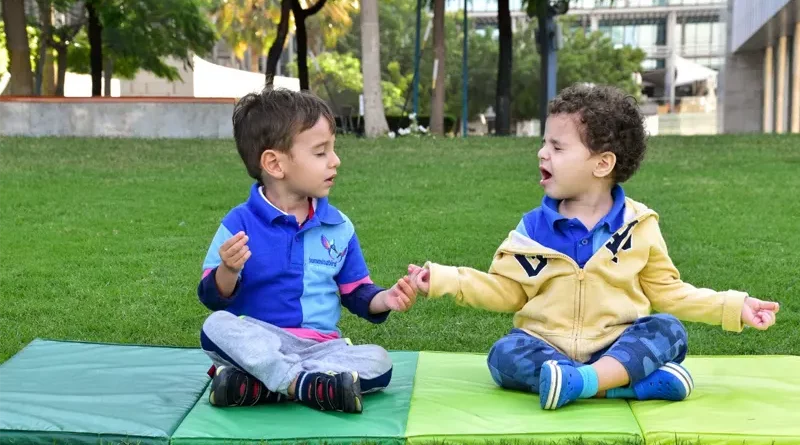Preschool Friendship: Social Skills Start in Early Childhood
Report: Umer Farooq
United Arab Emirates: In celebration of February’s International Friendship Month, Hummingbird Early Learning Centre, one of the leading centres for early years education and development in the UAE and accredited by the UK’s Pre-School Learning Alliance, shines a light on the importance of teaching friendship skills to pre-schoolers.
Friendships are one of the earliest and most important skills we learn in nurseries. It gives children valuable contexts in which to learn and practice skills related to social, cognitive, communicative, and emotional development.
At around three to four years old, children begin to gravitate towards each other, looking for play partners and acknowledgement from others their age. However, that doesn’t mean children always know how to be a good friend. That’s where teachers come in.

Below are some tips from Hummingbird on how to encourage friendships in early years:
1. Provide opportunities for children to play with other children
Children need to be able to play with other children to grow up and develop social skills. They need opportunities for free play. Children learn from each other during these interactions, so they must have the opportunity to engage in them often. Group activities can be a great way for children to have fun together, while also teaching them how to work with others. Some group activities that children can do at school include telling stories, drawing pictures, singing songs, or making crafts.
2. Encourage interaction between adults and children
The importance of encouraging interactions between adults and children is that it helps the child develop social skills. This especially refers to shy children who have trouble making friends with other children their age. It also provides opportunities for the child to learn about new things, such as how they can make friends or how they can interact with other people in their surroundings.
3. Offer activities that allow children to work together in small groups
To make friends, children can participate in informal activities informal such as playing sports and games with others. These activities allow kids to interact with each other on a more personal level.
4. Create a safe environment where children come together and share their feelings
To encourage friendships in these early years, children require a safe space to talk about their feelings. This is a place where they can feel free to express themselves without fear of being judged or criticised. It is also important that the people in the environment are supportive and understanding of what the child might be feeling.
5. Have an adult-lead conversation about friendship
One way an adult could lead a conversation with children about friendship is by asking them what they think makes someone a good friend, who their best friends are, or how they make new friends. This allow children to think and talk more about what friendship means to them.
Tanja Spasojevic, General Manager Al Tamimi Investments (ATI) Education – Hummingbird and Ora nurseries said: “Friendships contribute significantly to the development of social skills, such as being sensitive to another’s viewpoints, learning the rules of conversation, and age-appropriate behaviour. Seeing these early friendships formed between our youngest classmates first-hand are some of the centre’s most wonderful moments.”
Hummingbird Early Learning Centre opens its newest nursery branch in Dubai Airport Free Zone (DAFZA), on January 23. Catering to the working community in and around DAFZA – one of the quickest developing free zones in the Middle East and home to more than 3,100 companies – Hummingbird’s new branch is equipped with state-of-the-art facilities. It offers a home-away-from-home environment whilst implementing a learning through play structure, with a personalised and hands-on approach to childcare, ensuring each child receives the best care and attention, all year round.

